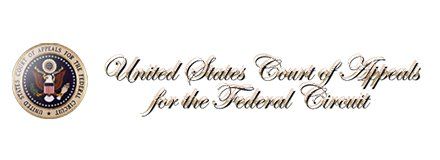PRACTICE AREAS
BLOG CATEGORIES
ASSOCIATIONS
When is it not a good idea to buy your daughter a new car?
Maryland Appeals Court affirms trial won by Attorney Day
As a small business owner, you may get in the position when you are forced to collect on a judgment. Unfortunately, part of that effort is to find and recover assets that may have been purposefully hidden. A Maryland appeals court recently affirmed a trial verdict obtained by Maryland attorney William Day finding that the transfer of a vehicle to avoid a creditor was a fraudulent conveyance, rejecting the debtor’s claim that the vehicle was compensation to his daughter for services performed.
The Facts of the case
In this case the debtor owed Attorney William Day’s client over $50,000 and was taking great pains not to pay one dime. Bankruptcy was not an option for the debtor since the debt was ruled non-dischargeable. So the debtor started to move his assets around and use his single member Limited Liability Company (SMLLC) as a shield and as his personal ATM.
To avoid paying any of the $50,000 judgment and to prevent seizer of his assets, the Debtor purchased, in full, a vehicle using a check from his SMLLC. Two days after the purchase of the vehicle, the debtor’s daughter formed an LLC for the stated purpose of “property management and improvement, investing and consulting.” Two days after the daughter’s company was formed, the vehicle was titled in the name of the daughter’s LLC.
The debtor claimed that the vehicle was payment for accounting services his daughter personally provided to the SMLLC. However, the daughter already had 5 vehicles at her disposal and the debtor maintained possession and use of this new vehicle. Notably, the vehicle was never titled to the debtor’s LLC and was never titled directly to the daughter.
The chain of title went from the seller to the daughter’s LLC hiding the fact that the car was purchased by the debtor.
Attorney Day filed suit on behalf of the creditor against the debtor and the daughter’s LLC to have the conveyance set aside.
When is a transfer of property fraudulent?
Maryland Commercial Law Article § 15-204 provides that every conveyance made and every obligation incurred by a person who is or will be rendered insolvent by it is fraudulent as to creditors without regard to his actual intent, if the conveyance is made or the obligation is incurred without fair consideration. Accordingly, the elements of a fraudulent conveyance under this statute are:
1) a conveyance;
2) the debtor either already is insolvent, or will be made insolvent by this conveyance;
3) the existence of a debtor-creditor relationship; and
4) lack of fair consideration.
The debtor and his daughter did not dispute that a conveyance occurred, nor that the debtor was insolvent at the time of the transfer, but argued that the other elements are not satisfied.
The Debtor-Creditor relationship
The Maryland Court of Special Appeals rejected the debtor’s argument that that the requisite debtor-creditor relationship did not exist as to this transaction. The debtor argued that the purchaser and transferor of the car was the debtors SMLLC and not the debtor personally. The court ignored the existence of the SMLLC without having to pierce the corporate veil. The court noted that debtor used his SMLLC’s operating account to pay personal expenses ($2,000 for a new suit, $10,000 for his daughter’s wedding, vacation timeshare and other vacations). The court acknowledged debtor’s testimony on this issue: “the only choice that I had at that time was to use my operating account . . . as an ATM account and let the accountant sort it out what’s a draw and what is a business expense later.”
The trial court found, and the Appeals Court affirmed, that the debtor and his SMLLC were so closely related to effectively be considered the same. Accordingly, the trial court was not clearly erroneous in determining that debtor, not his SMLLC, conveyed the car to his daughters LLC.
Fair Consideration
Property transferred to satisfy an antecedent debt, as the debtor contends here, may constitute fair consideration. The trial court acknowledged this, noting that “[h]ad the car simply been transferred to [daughters LLC] on behalf of [daughter] with it being used by [daughters LLC], that would have been fair consideration for services rendered.”
In finding a lack of fair consideration, however, the trial court found that debtor’s daughter “hadn’t really gotten anything for her services.” The appeals court agreed with the trial court’s opinion because debtor, not daughter’s LLC, exercised control over the vehicle. The trial court described the transaction in this way:
The Court looks at this transaction as if [debtor’s daughter] had been given $5,000 cash for her services but then her father says, let me have the money back and I’ll use it the way I want to. If you need any money, I’ll give you a few dollars, otherwise, I’m keeping the bulk of it.
The appeals court stated that the trial court’s finding was supported by extensive evidence in the record. For example, the vehicle remained in Rockville with debtor. The debtor used the vehicle the majority of the time and paid for its gas and maintenance.
The trial court also did not find debtor’s daughter’s testimony credible. Attorney Day called the daughter as an adverse witness and started questioning her about the alleged work she had done for her father’s LLC. She testified that she had provided accounting services and other general book keeping for over five years without any compensation. She stated that the vehicle was compensation for all of the unpaid work she had done. Upon further questioning she admitted that she did not report the value of car on her tax return and did never received a IRS form 1099. She also admitted that she currently owned five other vehicles and let her father drive and possess the car because she didn’t need it. When asked by attorney Day if she had reported the value of the vehicle as income she said, “no”. When asked why, she testified that an accountant had advised her that she need not report the vehicle as income for tax purposes.
Accordingly, appeals court held that the trial court was not clearly erroneous in finding that the transfer of the car lacked fair consideration.
In the end, the vehicle was turned-over to the creditor to sell. But all is not lost for our debtor…he now drives one of the five vehicles that is owned by his daughter. So, when is it a bad idea to buy your daughter a new car? When you purchase it for the sole purpose of avoiding a creditor.
William Day Law Group
Attorney William Day and the William Day Law Group focus on helping small businesses succeed. They handle all types of commercial litigation, commercial landlord disputes, commercial landlord/tenant as well as outside general counsel services for small businesses. Contact the William Day Law Group if you would like more information on how we can represent your interests.
# # #
If you would like more information about this topic, please contact William Day at 301-605-1722 or email at info@williamdaylaw.com. Past results afford no guarantee of future results. Every case is different and must be judged on its own merits.
The post When is it not a good idea to buy your daughter a new car? appeared first on William Day Law Group.









